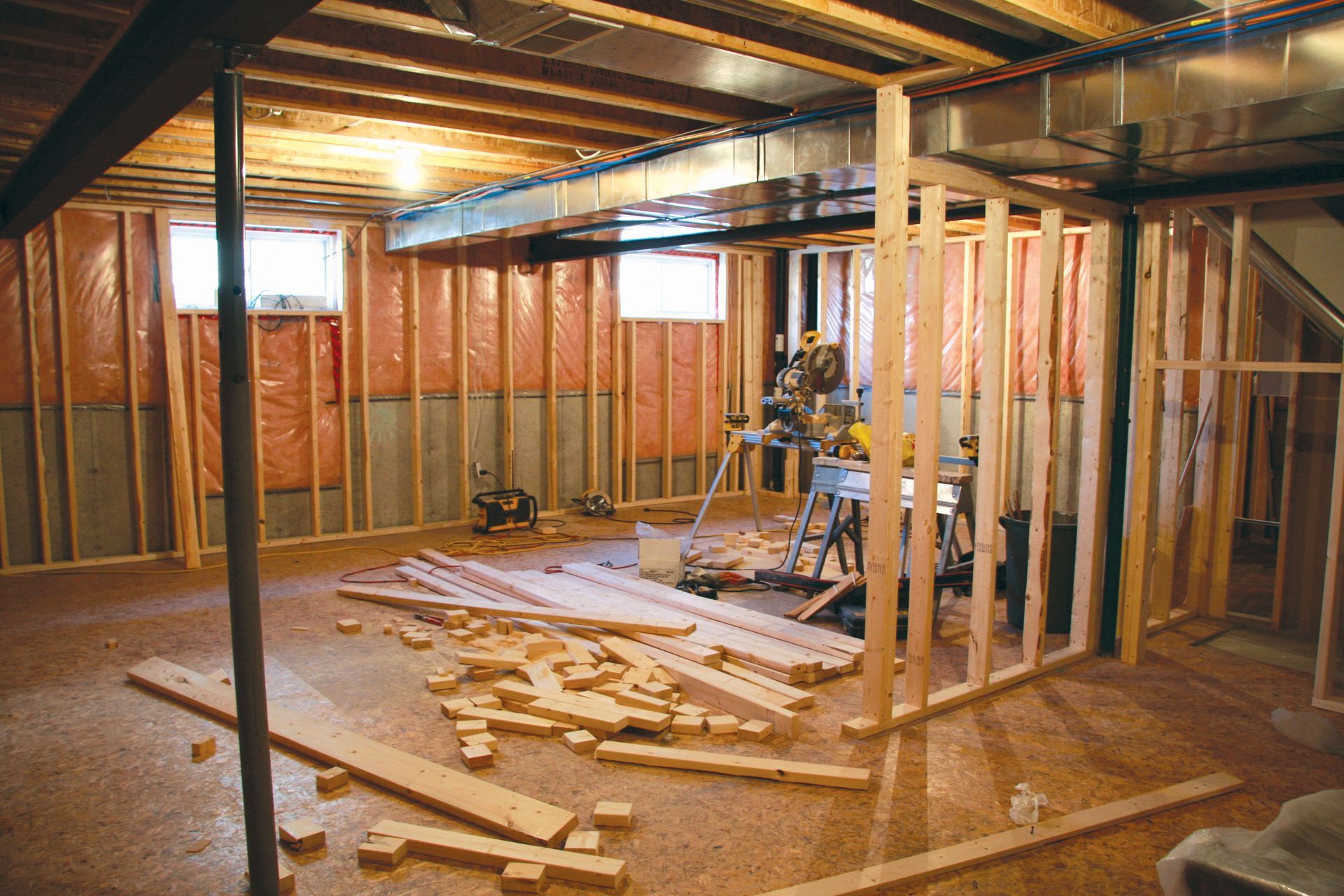October 13, 2025
In the ever-evolving landscape of commercial construction, achieving cost efficiency is paramount. Hiring a professional commercial contractor can significantly contribute to substantial savings in a project. Their expert skills and resources not only streamline the construction process but also minimize errors. This ensures high-quality results that ultimately save businesses money. Understanding the immense value that experienced contractors bring can be the key to successful project execution. Beyond construction itself, contractors leverage negotiation skills, innovative methods, and meticulous planning to drive financial efficiency. By exploring the many ways they reduce costs, businesses can better appreciate how integral contractors are to long-term success.
Choose Cost-Effective Materials
One of the core competencies of a skilled commercial contractor is choosing cost-effective materials that fulfill the client's requirements without compromising the structure's integrity. Contractors have access to a wide range of material options, enabling them to choose those that best balance durability and expense. They can negotiate favorable terms with suppliers, reducing material costs. This expertise allows them to make informed decisions that result in significant savings. Furthermore, by understanding material lifecycle and maintenance needs, contractors ensure long-term financial benefits.
Maximize Space Efficiency
Another way contractors save money is through strategic space optimization during the design phase. By analyzing how space will be used, they can propose designs that maximize utility while minimizing wasted space. This approach not only reduces construction costs but also enhances future operational efficiency. Contractors utilize architectural plans to improve functional space, which can yield savings on heating, cooling, and maintenance costs over time. Thoughtful design planning is critical, given that space allocation directly affects both construction and operational budgets.
Adopt Innovative Techniques
Innovation in construction techniques is another area where contractors facilitate cost savings. Through the adoption of new building technologies and methods, contractors can increase efficiency and reduce material usage. These innovations often translate into faster construction times, minimizing labor costs. Contractors stay informed about the latest methods, ensuring they apply the most effective strategies to their current projects. Their investment in continuous improvement and application of these techniques provides long-term savings and added value.
Implement Energy-Saving Solutions
Implementing efficient energy solutions is central to contemporary construction projects, where contractors play a pivotal role. They incorporate modern designs, such as green infrastructure, that reduce energy consumption and lower utility costs. Contractors evaluate the best energy solutions that align with project needs, factoring in costs associated with installation, maintenance, and usage. They prioritize sustainable practices that benefit both the environment and the bottom line. Such practices ensure commercial properties achieve considerable utility cost reductions over time.
Optimize Labor Allocation
Effective labor allocation is critical in maintaining budget integrity. Commercial contractors possess the expertise to assign tasks based on skill level and project deadlines. They match workers to roles effectively, ensuring optimum productivity and reduced labor costs. By carefully scheduling shifts and managing overtime, contractors can avoid unnecessary labor expenses. The strategic deployment of personnel leads to efficient project progression and substantial cumulative savings.
Reduce Waste Through Inventory Control
Another key area where contractors save costs is through stringent inventory management and waste reduction practices. By forecasting material needs accurately, they minimize excess inventory, which directly reduces financial waste. Contractors also implement effective recycling and reuse programs, safeguarding a project's budget. Their ability to optimize resource usage ensures materials are wasted minimally, supporting an environmentally sustainable approach. These practices provide additional cost savings over the project’s lifecycle.
Negotiate Better Supplier Deals
In commercial projects, contractors’ negotiation skills with suppliers can reduce expenses significantly. By purchasing in bulk, they obtain materials at reduced rates, reflecting positively on the project’s overall budget. Contractors leverage established relationships to negotiate favorable pricing and terms, optimizing resource expenditure. Such bargaining power is crucial in reducing overheads related to materials and supplies. This proactive approach ensures financial efficiency from initiation to project completion.
Streamline Project Timelines
Adhering to project timelines is a pillar of fiscal responsibility, where contractors excel by utilizing advanced scheduling techniques. They orchestrate tasks to ensure seamless progression and avoid costly delays. A well-structured timeline improves labor usage, maintains momentum, and reduces costs associated with downtime. Contractors use project management tools to monitor progress closely, ensuring adherence to schedules and budgets. Effective time management ultimately results in the timely completion of projects under budget constraints.
Ensure Compliance and Documentation
Documentation and compliance are vital areas where a commercial contractor offers cost-effective benefits. They ensure that all legal and regulatory requirements are met, preventing fines or legal challenges. Contractors maintain comprehensive records, providing visibility and reducing risks that could affect the budget and timeline. By managing compliance proactively, they safeguard the project from potential legal and financial ramifications. This diligence ensures the project's integrity and financial efficiency from inception to completion.
Plan Thoroughly Before Construction
Pre-construction planning is pivotal in mitigating risks and controlling costs. Contractors perform thorough assessments and planning to avoid unforeseen problems. Thorough planning marks a proactive approach, identifying potential challenges and facilitating effective solutions. By addressing these issues early on, contractors prevent budget overruns and maintain project integrity. Their diligence in pre-construction phases ensures a clear path forward, contributing to an economically manageable project. According to Construction Coverage, the total yearly spending or gross output for the construction industry in the U.S. was over $2 trillion in 2024, highlighting just how critical careful planning is in safeguarding massive financial investments across the sector.
Maintain Strong Safety Standards
Safety is a crucial concern for a commercial contractor firm in ensuring adherence to rigorous safety standards and protocols. Maintaining safety reduces accident-related expenses, which can escalate costs and cause delays. Contractors instill a culture of safety, protecting both workforce and financial assets. By following robust safety protocols, contractors maintain a secure environment that ultimately contributes to budget stability. This focus reinforces the importance of financial investment in safety training and equipment.
Guarantee Quality Workmanship
Quality assurance constitutes another critical cost control measure. A commercial contractor implements systematic checks and balances, guaranteeing that project elements meet desired standards. This vigilance reduces the occurrence of defects requiring costly rework or alterations. By ensuring consistently high-quality workmanship, they prevent unnecessary expenditures linked to inferiority. The ability to maintain quality standards throughout a project is thus a cornerstone of financial and operational success.
Protect Finances With Insurance
Insurance and liability management are essential in protecting commercial projects against unforeseen circumstances. A commercial contractor ensures proper insurance coverage, safeguarding against potential liabilities. Through comprehensive risk management strategies, they mitigate financial exposure from accidents or damage. This preparedness ensures economic security and reliability through the construction process. An informed approach to liability management ensures the project's protection and financial stability.
Resolve Unexpected Challenges Quickly
Commercial construction projects often face unexpected challenges requiring immediate action. Experienced contractors are adept at navigating and resolving such issues efficiently. Their ability to adapt prevents escalation, ensuring time and cost savings. Contractors employ strategic problem-solving skills that uphold project momentum and financial integrity. Their role in handling unpredictability is key in maintaining a project's economic and temporal trajectory.
The strategic advantages of hiring a commercial contractor extend far beyond mere construction tasks. Contractors engage in detailed planning and execution, focusing holistically on fiscal responsibility and efficiency. Their commitment to continuous improvement, industry awareness, and customer satisfaction ensures exceptional outcomes. Businesses can confidently rely on commercial contractors to manage complexities and deliver economically sound projects. Ultimately, this partnership drives both immediate savings and long-term value, creating statewide economic benefits. Reach out to Dark Horse General Contracting to learn more about our services today!




